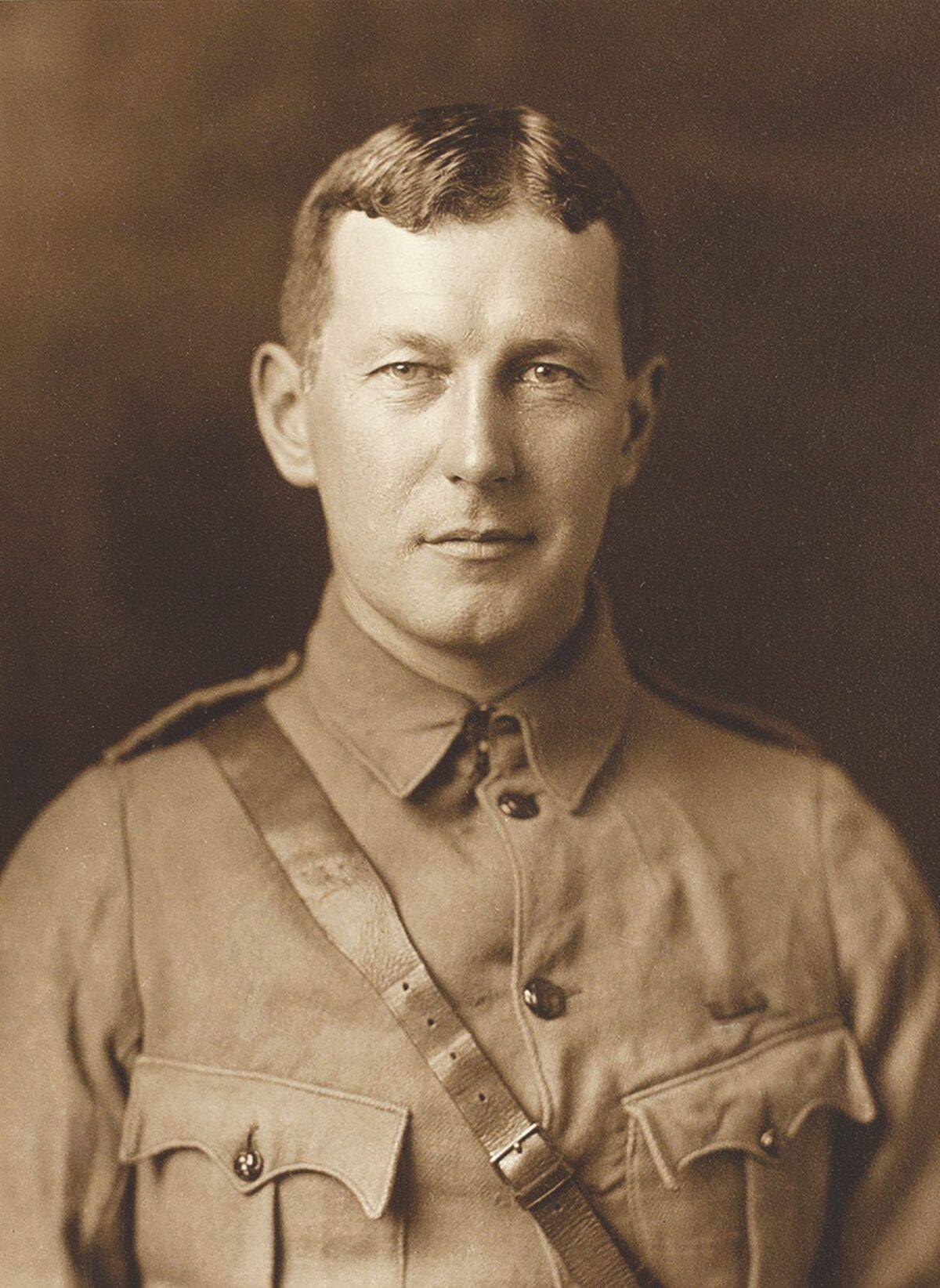John McCrae was born in 1872 in Guelph, Ontario, and began writing poetry in secondary school. He showed an early interest in joining the military (even though he had severe asthma) but later gravitated toward a career as a physician. He graduated from the University of Toronto’s medical school in 1898 and the following year took an internship at Johns Hopkins Hospital in Baltimore. With the onset of the Second Boer War in 1899, McCrae sailed to South Africa and spent a year there with an artillery battery from his hometown. But he was so shocked by the inadequate medical care soldiers received that, soon after being promoted to major, he resigned from the military.
When Britain declared war on Germany in 1914, McCrae, by then a member of the Royal College of Surgeons, reenlisted and sailed with the First Canadian Contingent to England. In 1915 he found himself in the trenches near Ypres, Belgium, where for 17 days he tended to soldiers injured (many by poison gas) in the bloody Second Battle of Ypres. While he was stationed there, a friend, 22-year-old Lieutenant Alexis Helmer, was killed by artillery fire and buried in a makeshift grave. As McCrae presided over Helmer’s funeral on May 3, 1915, he took note of the wild poppies growing around the graves of those who had died at Ypres. The next day, as he sat in an ambulance at a dressing station outside Ypres, McCrae composed In Flanders Fields. Published in Punch on December 8, 1915, it almost instantly became the most famous poem of World War I, and the poppy was soon adopted as a symbol of remembrance for those who died in service of their country.
Soon after he wrote In Flanders Fields, McCrae was transferred to No. 3 Canadian General Hospital at Dannes-Camiers near Boulogne-sur-Mer, France, where he was named the chief of medical services. (“All the goddamn doctors in the world will not win this bloody war,” he complained to a friend. “What we need is more and more fighting men.”) There, he and his staff treated men wounded in the Battle of the Somme, the Battle of Vimy Ridge, the Battle of Arras, and the Third Battle of Ypres. Saddened and disillusioned by the war, McCrae wrote what is thought to be his final poem, “The Anxious Dead.” It was published in the London Spectator in September 1917.
Months later McCrae had a severe asthma attack, and he died at a British hospital for officers in Wimereux, France, on January 28, 1918. He was 45. McCrae was buried with full military honors the following day in Wimereux Communal Cemetery, just a mile or so up the coast from Boulogne and not far from the fields of Flanders.
The Anxious Dead
O guns, fall silent till the dead men hear
Above their heads the legions pressing on:
(These fought their fight in time of bitter fear,
And died not knowing how the day had gone.)
O flashing muzzles, pause, and let them see
The coming dawn that streaks the sky afar;
Then let your mighty chorus witness be
To them, and Caesar, that we still make war.
Tell them, O guns, that we have heard their call,
That we have sworn, and will not turn aside,
That we will onward till we win or fall,
That we will keep the faith for which they died.
Bid them be patient, and some day, anon,
They shall feel earth enwrapt in silence deep;
Shall greet, in wonderment, the quiet dawn,
And in content may turn them to their sleep.
This article appears in the Winter 2020 issue (Vol. 32, No. 2) of MHQ—The Quarterly Journal of Military History with the headline: Poetry | ‘This Bloody War’

Want to have the lavishly illustrated, premium-quality print edition of MHQ delivered directly to you four times a year? Subscribe now at special savings!

